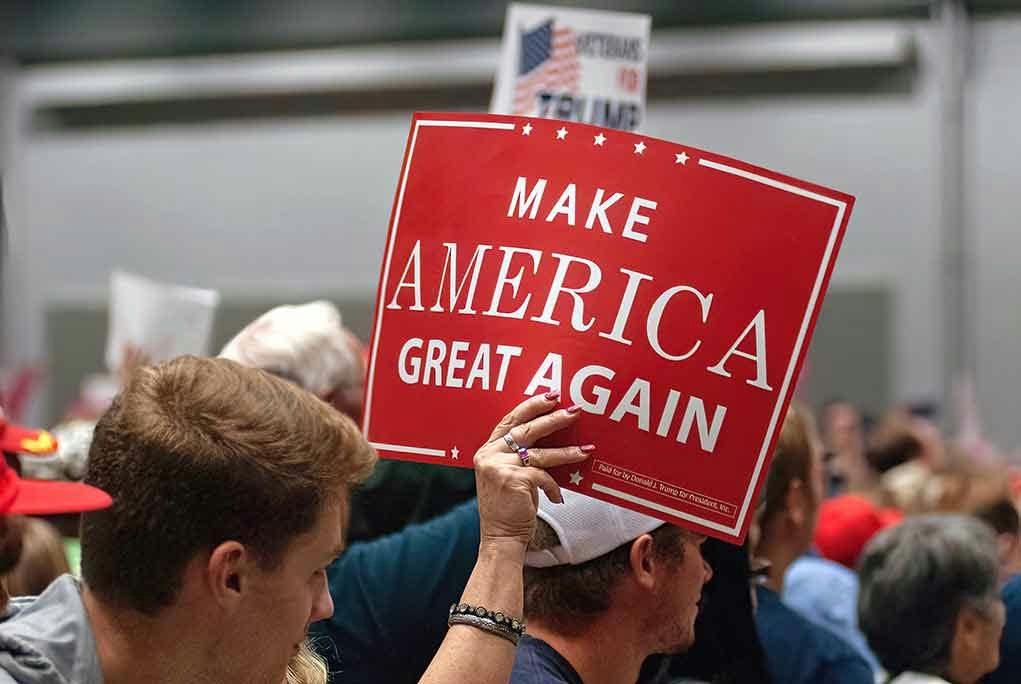When a former NFL punter is hauled out of a city council meeting for denouncing a library plaque, it’s not just a local dust-up—it’s a flashpoint in America’s escalating war over public symbols, free speech, and the boundaries of activism.
Library Politics Become a National Battlefield
Huntington Beach’s decision to install a “MAGA” plaque at its Central Library was not simply a matter of honoring the institution’s 50th anniversary. The city council, which has leaned into conservative policies in recent years, saw the plaque as a symbol of community pride. For critics like Chris Kluwe, however, “MAGA”—originally Donald Trump’s campaign slogan—has become an emblem of exclusion, censorship, and authoritarianism. When Kluwe approached the council dais to denounce the ideology as “explicitly a Nazi movement,” his act of civil disobedience drew immediate police intervention and a charge of disturbing an assembly. The protest, arrest, and subsequent firing of Kluwe from his coaching job sent shockwaves through Orange County and beyond.
The council’s unanimous approval of the plaque and its refusal to reconsider the acrostic raised questions about the use of overtly political messaging in ostensibly neutral public spaces. For many Huntington Beach residents, the library is a community cornerstone, not a political battleground. Yet, the decision to enshrine “MAGA” in its halls set the stage for a broader confrontation over what values public institutions should represent—and who gets to decide.
Consequences for Speaking Out
Kluwe’s protest did not end at the council meeting. Within days, Edison High School fired him from his coaching position, a move he attributes directly to his visible activism. The school administration cited concerns about public attention and controversy, underscoring the professional risks faced by those who defy local authority. Kluwe’s firing became a rallying point for activists and nonprofit leaders, who praised his willingness to leverage privilege in defense of marginalized communities. For Kluwe, the stakes were clear: silence in the face of what he viewed as corrupt and oppressive policy was not an option.
Local activist groups, including Pride at the Pier, publicly supported Kluwe, arguing that privileged individuals have a duty to challenge policies that threaten inclusivity and representation. The Huntington Beach controversy reflects a national pattern, where political symbols in schools, libraries, and other public spaces spark legal battles, employment disputes, and intense community division. Kluwe’s transition from sports to activism and, now, to political candidacy, demonstrates the personal costs and public impact of confronting entrenched power.
Symbolism, Censorship, and Public Space
The MAGA plaque is far more than decorative—it represents a contested vision of America’s future. Councilmember Chad Williams insists “Make America Great Again” is a benign message of patriotism and local values. Progressive activists, by contrast, interpret the acronym as a rallying cry for exclusion and oppression, especially in light of the council’s recent moves to make Huntington Beach a “non-sanctuary city” and establish a committee to review and potentially censor children’s books. The library, once a symbol of shared knowledge and civic unity, has become a stage for ideological conflict.
National media coverage has amplified the story, with outlets like LA Times, LAist, and Fox News documenting the fallout and amplifying stakeholder perspectives. The incident has drawn attention to the precarious balance between free speech and institutional control, as well as the risks for public figures who challenge the status quo. Kluwe’s characterization of MAGA as “explicitly a Nazi movement” is a point of sharp contention, with conservative councilmembers and commentators rejecting such comparisons as inflammatory and misguided. Yet, the backlash has only intensified calls for transparent, inclusive governance in Huntington Beach and beyond.
Activism’s Risks and Ripple Effects
The short-term effects of Kluwe’s protest are unmistakable: heightened polarization, media scrutiny, and a bitter debate over political messaging in public institutions. For Kluwe and his family, the consequences have been immediate—loss of employment, national attention, and a place at the center of a contentious public narrative. For Huntington Beach residents, the incident has exposed deep divisions over whose values the community should reflect and how public spaces should be used. Marginalized groups and activist organizations face renewed challenges in advocating for representation and safety.
Long-term, the story may set a precedent for athlete activism and its professional costs, reshape local governance, and influence upcoming elections. Kluwe’s run for California State Assembly marks a new phase in the fight, as he seeks to translate grassroots advocacy into legislative power. The controversy underscores the dangers and rewards of confronting political orthodoxy, offering both a warning and a blueprint for those willing to challenge the boundaries of acceptable dissent. In the end, the Huntington Beach saga is less about a single plaque and more about the ongoing struggle to define America’s public spaces—and the responsibilities of those who dare to speak out.

